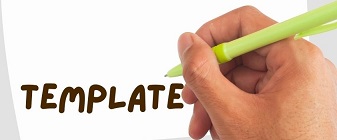Inductive Training Model in Improving Teacher Competence through Teacher Working Groups
(1) Universitas Negeri Jakarta
(2) Universitas Negeri Jakarta
(3) Universitas Negeri Jakarta
(*) Corresponding Author
DOI: https://doi.org/10.26858/ja.v8i2.27544
Abstract
Professionalism is a demand in various professions, including elementary school teachers. The important thing in a profession is a professional attitude and quality of work. This research was conducted with the aim of providing an overview of how the inductive training model develops attitude assessment instruments in improving teacher competence through teacher working groups in accordance with the steps of the inductive training model. The research approach used in this study is a descriptive qualitative approach to obtain information on how the inductive training model improves teacher competence through teacher working groups. In general, there are four data collection techniques used in this study, namely participant observation, in-depth interviews, documentation studies, and combination/triangulation. The steps in implementing the inductive training model are starting with measuring the ability of the trainees; grouping of abilities in the area of the training program; compare participants' abilities with training materials; establish ability and skills gaps; developing training processes; then carry out the training; and carry out research and measurement. The research was conducted by conducting pretest and posttest with the results obtained after carrying out training on developing an attitude assessment instrument, post-test results increased by 97%.
Keywords
Full Text:
PDFReferences
Alimuddin, A. (2014). Penilaian Dalam Kurikulum 2013. Prosiding Seminar Nasional, 23–33.
Brown, J. B. (2002). Training Needs Assessment: A Must for Developing an Effective Training Program. Public Personnel Management, 31(4), 569–578.
Darwis, M., Batari, U. D., Salam, R., Kasmita, M., & Baharuddin, A. (2019). Pengaruh Kompetensi Profesional Guru Terhadap Kualitas Proses Pembelajaran Pada Paket Keahlian Administrasi Perkantoran Di SMK Negeri 1 Gowa. Jurnal Ad’ministrare, 5(2), 105–112.
Kamil, M. (2010). Model Pendidikan dan Pelatihan (Konsep dan Aplikasi. Alfabeta.
Khaerudin, K., Munadi, S., & Supianto, S. (2020). Affective Assessment Using Social Media. Universal Journal of Educational Research, 8(7), 2921–2928.
Marno, M., & Tausih, T. U. (2021). Pelaksanaan Penilaian Ranah Afektif Menggunakan Google Form di Era New Normal. J-PAI : Jurnal Pendidikan Agama Islam, 7(2).
Mashoedah, M. (2015). Kajian Penggunaan Media Pembelajaran dalam Pelatihan Peningkatan Kompetensi Profesional Guru. Elinvo (Electronics, Informatics, and Vocational Education), 1(1), 17–25.
Nasution, H. F., Sudrajat, A., & Jahro, I. S. (2019). Analysis of Affective Assessment Material in the Textbook Evaluation of Chemistry Learning Outcomes Based on SNPT and Curriculum KKNI. 4th Annual International Seminar on Transformative Education and Educational Leadership (AISTEEL 2019), 727–729.
Pitriana, R. B., & Nawir, M. (2020). The School Cluster Working Group As A Media To Improve The Performance Of Elementary School Teachers (Case Study of the Working Group Teachers Cluster II Tinggimoncong District). Jurnal PAJAR (Pendidikan Dan Pengajaran), 4(3).
Rakib, M., Rombe, A., & Yunus, M. (2017). Pengaruh Pelatihan Dan Pengalaman Mengajar Terhadap Profesionalitas Guru (Studi pada Guru IPS Terpadu yang Memiliki Latar Belakang Pendidikan dalam Bidang Pendidikan Ekonomi). Jurnal Ad’ministrare, 3(2), 137–148.
Rasyid, H. Al. (2017). Fungsi Kelompok Kerja Guru (Kkg) Bagi Pengembangan Keprofesionalan Guru Sekolah Dasar. Jurnal Sekolah Dasar: Kajian Teori Dan Praktik Pendidikan, 24(2), 143–150.
Sugiyono. (2017). Metode Penelitian Pendidikan Kuantitatif Kualitatif dan R&D. CV Alfabeta.
Sukirman, S. (2020). Efektivitas Kelompok Kerja Guru (KKG) dalam Peningkatan Kompetensi Guru. Indonesian Journal of Education Management and Administration Review, 4(1).
Sutisna, D., & Widodo, A. (2020). Peran Kompetensi Guru Sekolah Dasar Dalam Meningkatkan Efektivitas Pembelajaran Daring. Jurnal Bahana Manajemen Pendidikan, 9(2), 58–64. https://doi.org/https://doi.org/10.24036/jbmp.v9i2 http://ejournal.unp.ac.id/index.php/bahana
Syamsudin, A., Budiyono, B., & Sutrisno, S. (2016). Model Of Affective Assessment Of Primary School Students. Research and Evaluation in Education, 2(1), 25–41.
Triyusmidarti, N. (2017). Analisis Kompetensi Guru Sekolah Dasar di Kecamatan Patumbak Kabupaten Deli Serdang. Jurnal Tabularasa Pps Unimed.
Yin, H., To, K. H., Keung, C. P. C., & Tam, W. W. Y. (2019). Professional Learning Communities Count: Examining The Relationship Between Faculty Trust and Teacher Professional Learning in Hong Kong Kindergartens. Eaching and Teacher Education, 82, 153–163.
Article Metrics
Abstract view : 142 times | PDF view : 30 timesRefbacks
- There are currently no refbacks.
Copyright (c) 2021 Linda Zakiah, Zulela. MS, Edwita Edwita

This work is licensed under a Creative Commons Attribution-NonCommercial-NoDerivatives 4.0 International License.






























 under a
under a